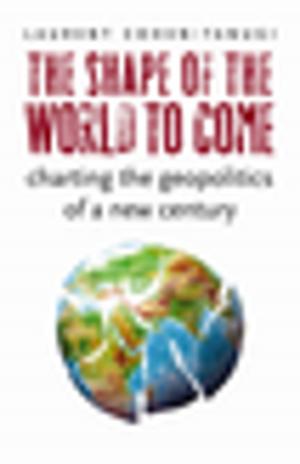Shi'ite Lebanon
Transnational Religion and the Making of National Identities
Nonfiction, History, Middle East, Social & Cultural Studies, Social Science, Anthropology| Author: | Roschanack Shaery-Eisenlohr | ISBN: | 9780231513135 |
| Publisher: | Columbia University Press | Publication: | July 3, 2008 |
| Imprint: | Columbia University Press | Language: | English |
| Author: | Roschanack Shaery-Eisenlohr |
| ISBN: | 9780231513135 |
| Publisher: | Columbia University Press |
| Publication: | July 3, 2008 |
| Imprint: | Columbia University Press |
| Language: | English |
By recasting the relationship between religion and nationalism in the Middle East, Roschanack Shaery-Eisenlohr proposes a new framework for understanding Shi'ite politics in Lebanon. Her study draws on a variety of untapped sources, reconsidering not only the politics of the established leadership of Shi'ites but also institutional and popular activities of identity production. Shaery-Eisenlohr traces current Shi'ite politics of piety and authenticity to the coexistence formula in Lebanon and argues that engaging in the discourses of piety and coexistence is a precondition to cultural citizenship in Lebanon. As she demonstrates, debates over the nature of Christianity and Islam and Christian-Muslim dialogue are in fact intertwined with power struggles at the state level.
Since the 1970s, debates in the transnational Shi'ite world have gradually linked Shi'ite piety with the support of the Palestinian cause. Iran's religious elite has backed this piety project in multiple ways, but in doing so it has assisted in the creation of a variety of Lebanese Shi'ite nationalisms with competing claims to religious and national authenticity. Shaery-Eisenlohr argues that these ties to Iran have in fact strengthened the position of Lebanese Shi'ites by providing, as is recognized, economic, military, and ideological support for Hizbullah, as well as by compelling Lebanese Shi'ites to foreground the Lebanese components of their identity more forcefully than ever before.
Shaery-Eisenlohr challenges the belief that Shi'ite identity politics only serve to undermine the Lebanese national project. She also makes clear that the expression of Lebanese Shi'ite identity is a nationalist expression and an unintended result of Iranian efforts to influence the politics of Lebanon.
By recasting the relationship between religion and nationalism in the Middle East, Roschanack Shaery-Eisenlohr proposes a new framework for understanding Shi'ite politics in Lebanon. Her study draws on a variety of untapped sources, reconsidering not only the politics of the established leadership of Shi'ites but also institutional and popular activities of identity production. Shaery-Eisenlohr traces current Shi'ite politics of piety and authenticity to the coexistence formula in Lebanon and argues that engaging in the discourses of piety and coexistence is a precondition to cultural citizenship in Lebanon. As she demonstrates, debates over the nature of Christianity and Islam and Christian-Muslim dialogue are in fact intertwined with power struggles at the state level.
Since the 1970s, debates in the transnational Shi'ite world have gradually linked Shi'ite piety with the support of the Palestinian cause. Iran's religious elite has backed this piety project in multiple ways, but in doing so it has assisted in the creation of a variety of Lebanese Shi'ite nationalisms with competing claims to religious and national authenticity. Shaery-Eisenlohr argues that these ties to Iran have in fact strengthened the position of Lebanese Shi'ites by providing, as is recognized, economic, military, and ideological support for Hizbullah, as well as by compelling Lebanese Shi'ites to foreground the Lebanese components of their identity more forcefully than ever before.
Shaery-Eisenlohr challenges the belief that Shi'ite identity politics only serve to undermine the Lebanese national project. She also makes clear that the expression of Lebanese Shi'ite identity is a nationalist expression and an unintended result of Iranian efforts to influence the politics of Lebanon.















